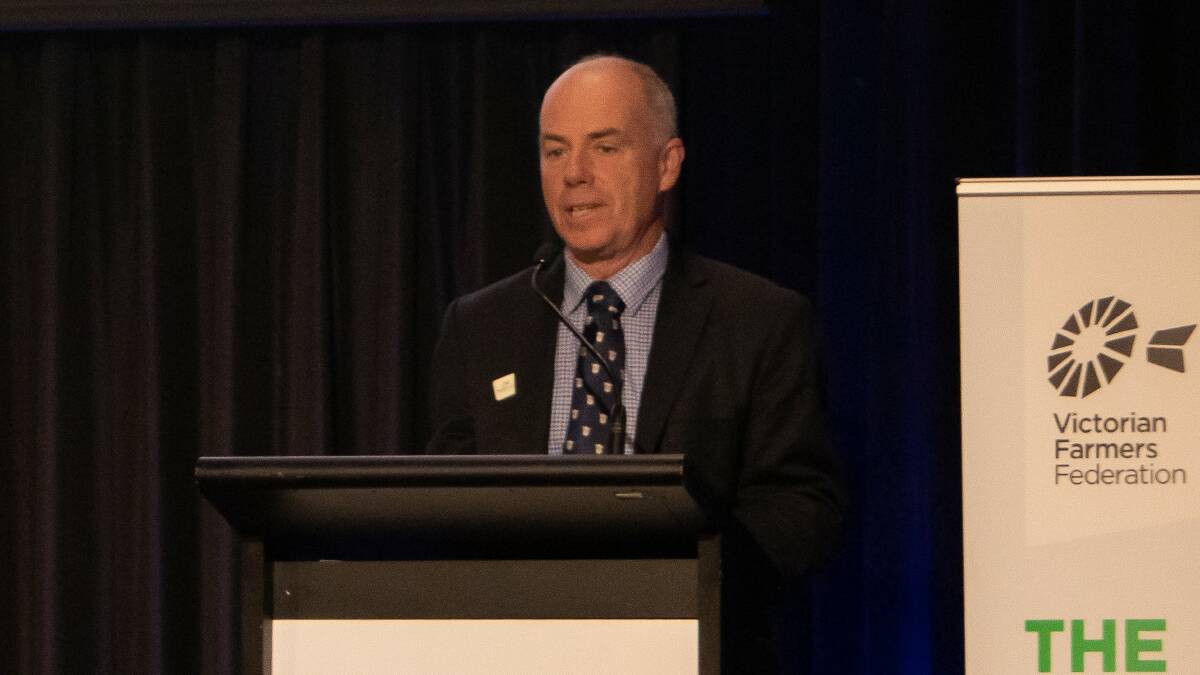
The head of the VFF Livestock Group says authorities should consider some restrictions on travel to Indonesia to reduce the risk of foot in mouth disease (FMD) spreading in Australia.
Subscribe now for unlimited access to all our agricultural news
across the nation
or signup to continue reading
In an address at the Victorian Farmers Federation's Grain and Livestock conference, Steve Harrison said the country needed to be cautious considering the spread of the disease.
"Since [the spread of] African swine flu, biosecurity borders have been strengthened," he said.
He said border controls seem aware of the dangers and are very alert when tourists are currently returning from the country.
"The other day [authorities] caught four people with mud on their shoes, which is really good, but we need to stop it before we get to that point," he said.
During a later session Mr Harrison said told hosts of the Agwatchers podcast, Andrew Whitelaw and Matt Dalgleish, that the sector would "watch this space", but there was also a need to be proactive now to prevent the spread of the disease into Australia.
READ MORE:
Agriculture Victoria principal veterinary officer - emergency animal disease Megan Scott spoke at the conference and said FMD was likely introduced into Indonesia via illegally imported animals entering markets.
She said FMD, lumpy skin, African horse sickness and African swine fever were all difficult to prevent, control and minimise.
"When we think about 70 per cent of what we produce is exported, and when you start to rely upon what our trading partners want, that is out of our control to some extent," Dr Scott said.
"So they will determine what they want, they will determine what those impacts of those consequences will be for us as producers."
Dr Kelly said there were several potential pathways for the disease to arrive in Victoria.
"Let's say we've declared food products ... that have come into Australia, but those that are coming in illegally, whether that be through deception or that be through just plain ignorance, they too are a risk for us," she said
"Previously, they've all been listed on these risk profiles and all these sorts of things, but the reality is that they're not just a theoretical risk, it is a reality."
She said a coordinated response between producers, industry and
the government was needed if FMD did come into the country, which included maintaining good records of livestock movements, understanding what to look for in livestock and developing on-farm biosecurity plans.
She also said that while vaccination is being considered, it could pose other risks to the livestock industry.
"People often ask me, 'why don't we just start vaccinating now?', [we can] prevent it and we'll be ready for it," she said.
"The challenge is though is that a lot of our trading partners will actually restrict trade if we start vaccinating, so we're damned if we do damned if we don't."
Earlier this week an online portal for information on FMD and lumpy skin disease preparedness was launched by the Queensland government.

